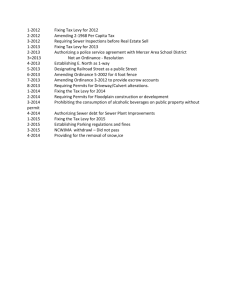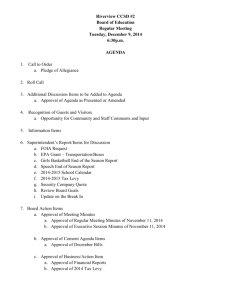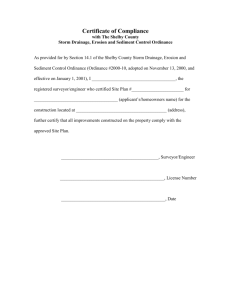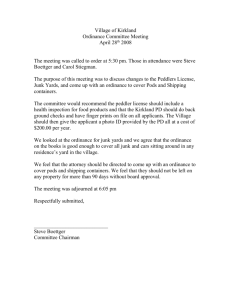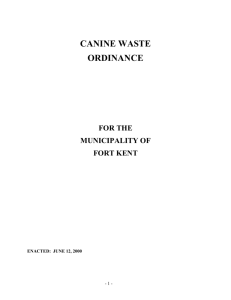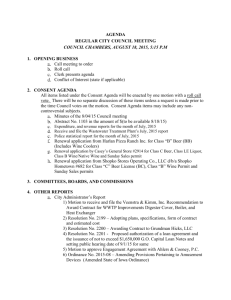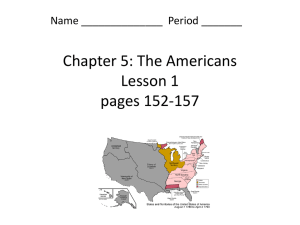Library Law: Budgeting, Appropriating, and Levying
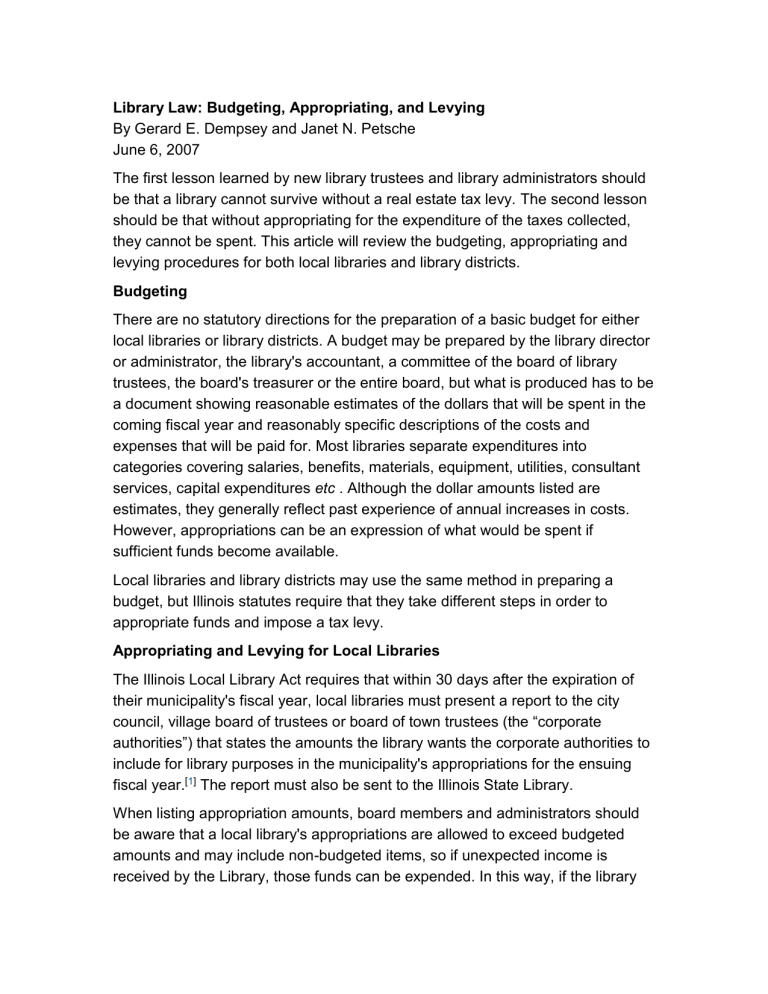
Library Law: Budgeting, Appropriating, and Levying
By Gerard E. Dempsey and Janet N. Petsche
June 6, 2007
The first lesson learned by new library trustees and library administrators should be that a library cannot survive without a real estate tax levy. The second lesson should be that without appropriating for the expenditure of the taxes collected, they cannot be spent. This article will review the budgeting, appropriating and levying procedures for both local libraries and library districts.
Budgeting
There are no statutory directions for the preparation of a basic budget for either local libraries or library districts. A budget may be prepared by the library director or administrator, the library's accountant, a committee of the board of library trustees, the board's treasurer or the entire board, but what is produced has to be a document showing reasonable estimates of the dollars that will be spent in the coming fiscal year and reasonably specific descriptions of the costs and expenses that will be paid for. Most libraries separate expenditures into categories covering salaries, benefits, materials, equipment, utilities, consultant services, capital expenditures etc . Although the dollar amounts listed are estimates, they generally reflect past experience of annual increases in costs.
However, appropriations can be an expression of what would be spent if sufficient funds become available.
Local libraries and library districts may use the same method in preparing a budget, but Illinois statutes require that they take different steps in order to appropriate funds and impose a tax levy.
Appropriating and Levying for Local Libraries
The Illinois Local Library Act requires that within 30 days after the expiration of their municipality's fiscal year, local libraries must present a report to the city council, village board of trustees or board of town trustees (the “corporate authorities”) that states the amounts the library wants the corporate authorities to include for library purposes in the municipality's appropriations for the ensuing fiscal year.
[ 1 ] The report must also be sent to the Illinois State Library.
When listing appropriation amounts, board members and administrators should be aware that a local library's appropriations are allowed to exceed budgeted amounts and may include non-budgeted items, so if unexpected income is received by the Library, those funds can be expended. In this way, if the library
receives unexpected donations or the real estate tax collection unexpectedly increases for any reason, including the passage of a referendum, the library would be able to expend the additional funds.
In the same report in which the local library lists its appropriations, it should report, among many other required items, the amount the library board believes it will be necessary for the corporate authorities to levy for library purposes in the municipality's next annual levy ordinance. Because a municipality's levy ordinance must be filed with the county clerk on or before the last Tuesday in
December each year, some library boards confirm the levy by adopting a resolution closer to the date that the levy ordinance is to be adopted. After its adoption, the library is to forward a certified copy of the resolution to the corporate authorities, advising them to include the library's levy amount in the municipality's levy ordinance.
While the law requires the corporate authorities to levy the amount requested by a local library, without diminution, [ 2 ] the county clerk will, if requested in writing by the corporate authorities of non-home rule villages (as opposed to cities and towns), be required to impose a separate limiting rate under the Property
Extension Limitation Law (“PTELL”) directly on the library's requested levy [ 3 ] If the corporate authorities in these non-home rule villages do not make such a request, the library's levy amount will be subject only to the limits imposed by
PTELL, proportionally distributed among all of the funds of the municipality.
Appropriating and Levying for Library Districts
The law requires that a library district adopt an ordinance combining budget and appropriations, including a statement of cash on hand, an estimate of cash to be received from all sources during the fiscal year, an estimate of expected expenditures and a statement of the estimated cash expected to be on hand at the end of that year.
[ 4 ] The library's ordinance must be adopted within the first quarter of the fiscal year, but no later then the fourth Tuesday of September.
[ 5 ]
At least 30 days before adoption, a tentative budget and appropriation ordinance must be posted at the library and notice of a public hearing on the budget and appropriations must be published. The notice should state the time and place of the meeting and where copies of the tentative ordinance can be obtained. Within
30 days after the budget and appropriation ordinance is adopted, the library must file a certified copy with the county clerk. A certified copy of the ordinance must also be published after its adoption.
Administrators and board members should note that the law allows the transfer from one appropriation to another appropriation so long as the amount transferred does not affect the total amount appropriated and does not exceed
10% of the total appropriation in the fund.
[ 6 ] The transfer may be made by adopting an ordinance with the approval of 2/3ds of all of the library trustees present and voting at any meeting of the library board.
If a budget and appropriation ordinance must be amended, the procedure to adopt the original document must be followed. In other words, notice of a public hearing must be published, a tentative amended ordinance must be posted and a public hearing must be held before adoption of the amendment.
After publication of the budget and appropriation ordinance, a library district must adopt its levy ordinance on or before the first Tuesday in December. Before adoption of the tax levy ordinance, the library board must determine if it must hold a public hearing pursuant to the Truth in Taxation Act that requires such a hearing if the amount levied increases or decreases the prior year's extension by more than 5%.
[ 7 ] Notice of such hearing, in the form dictated by that Act, must be published not less than 7 and not more than 14 days before the hearing is held.
Upon adoption of the levy ordinance, the library must file a certified copy of the levy ordinance with the county clerk, on or before the last Tuesday in December.
The importance of following these procedures for appropriating and levying is clear when it is understood that a county clerk may refuse to levy taxes if appropriate deadlines are not meet and that even a minor deviation from the required procedures can be the basis for a tax rate objection brought by taxpayers, seeking a refund of collected taxes.
Library administrators and board members should make every effort to schedule adoption of the required documents, allowing enough time to meet deadlines, even if faced with unexpected contingencies.
About the Authors
Gerard Dempsey and Janet Petsche are partners with the law firm of Klein,
Thorpe & Jenkins, Ltd. which is an Illinois law firm with offices in the Civic Opera
Building at 20 North Wacker Drive in Chicago and at 15010 S. Ravinia, Orland
Park. The firm concentrates in the representation of local libraries, library districts and library systems, as well as other local governmental units.
Footnotes
[ 1 ] 75 ILCS 5/4-10.
[ 2 ] See Rockford v. Gill , 75 Ill.2d 334 (1979).
[ 3 ] 35 ILCS 200/18-195.
[ 4 ] 50 ILCS 330/3 (Library Districts must follow the dictates of the Illinois Municipal
Budget Law as well as the directions in the Illinois Public Library District Act of
1991 (75 ILCS 16/1-1 et seq. )).
[ 5 ] 75 ILCS 16/30-85.
[ 6 ] 50 ILCS 330/3.
[ 7 ] 35 ILCS 200/18-80 et seq. .
Originally Published June 8, 2007 in vol. 6, issue 23 of the North Suburban
Library System Newsletter.
